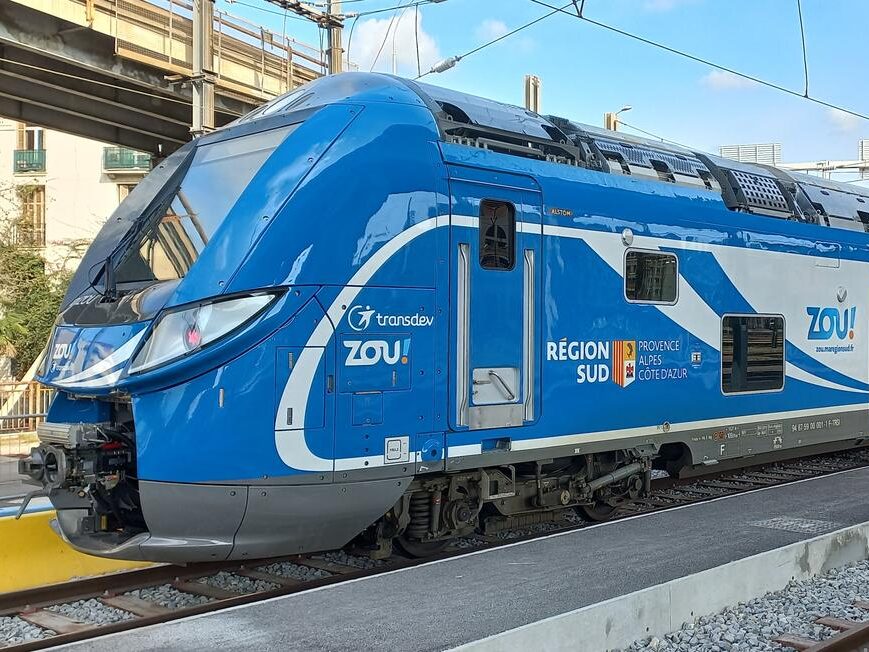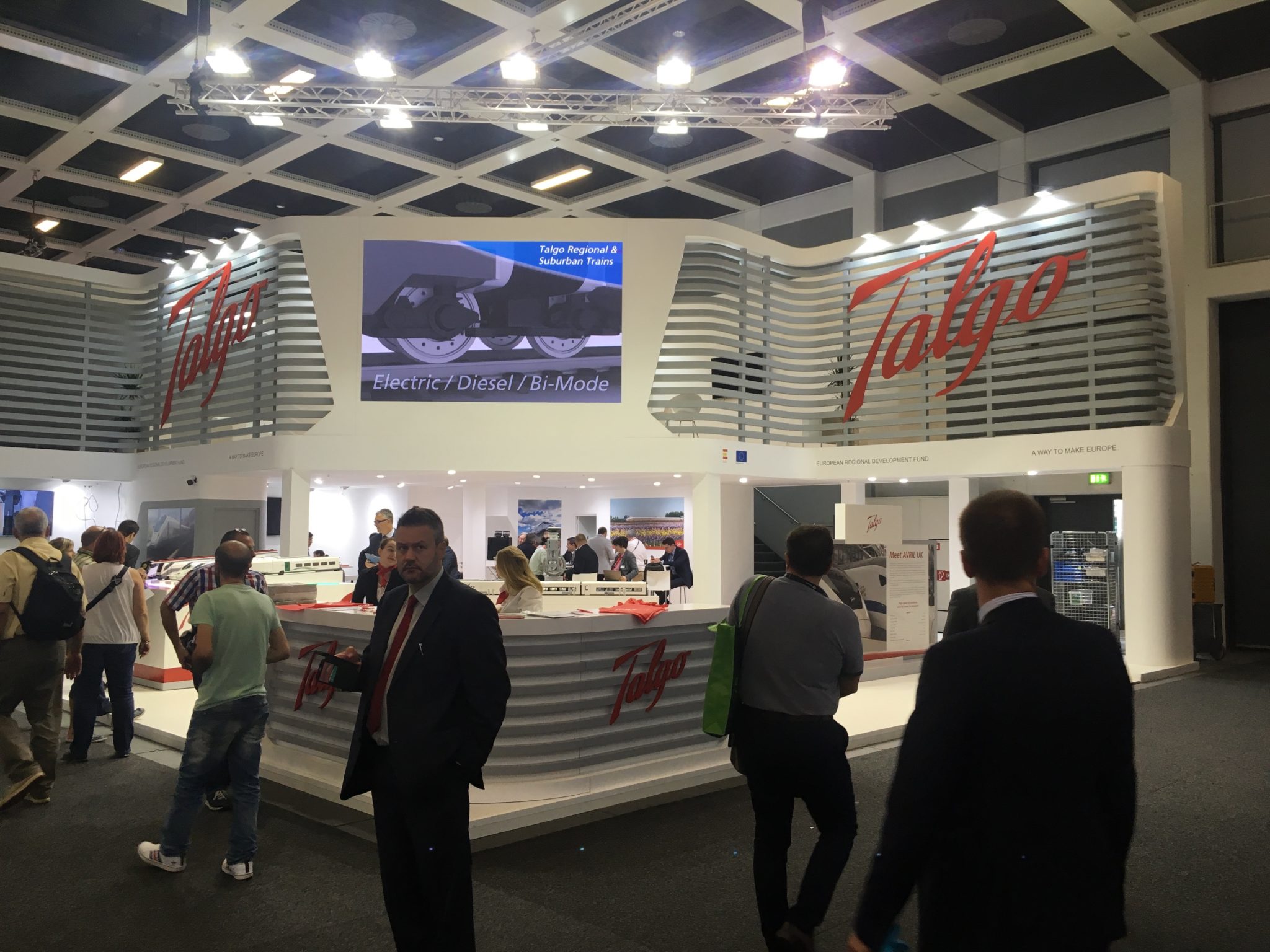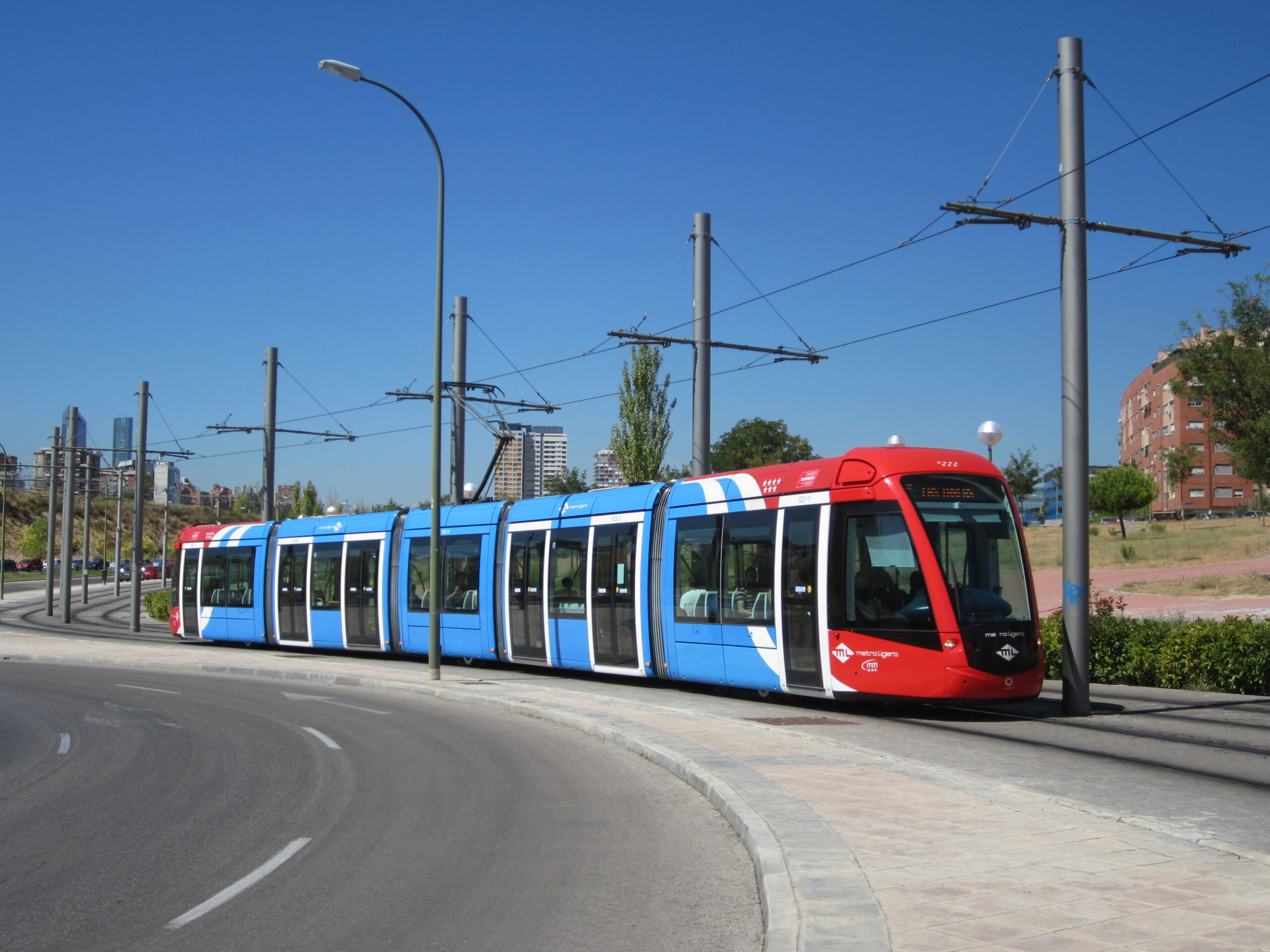Spanish rolling stock manufacturer Talgo has started the dynamic testing of its very high-speed train, the Talgo Avril.
The first Talgo Avril started its test phase on the rail network this week on a segment of the Madrid-Galicia line. Once this technical homologation is complete, the trains can be put into passenger service by Spanish train operator Renfe. Each Talgo Avril will have a capacity of 581 seated passengers, making it the lightest high-capacity train on the market. The very high-speed train will have a top commercial speed of 330km/h.
The dynamic tests are there to determine the behaviour of the train’s elements while in motion, such as the running gear systems. The operating conditions will become increasing complex over the course of the test phase, reaching the speed required for technical homologation of more than 360km/h. The tests will continue for several weeks. For the moment the plan is for them to take place fully on the Madrid-Galicia high-speed line but they could be extended to other parts of the Spanish rail network as well.

Talgo Avril Homologation
These homologation tests are the final part of the manufacturing process. Talgo is manufacturing 30 Avril trains in total. The units will be homologated for operations in both Spain and France.
Accessibility
Each of the 30 trains will be comprised of 12 passenger cars, making the train 200m in total. All of these cars will be single-decker and there will be level-boarding at the platforms so that passengers can access the trains and move about in them without steps or ramps.
Renfe Contract
The 30 trains in this contract are divided into different blocks depending on their internal commercial configurations, their automatic variable-gauge system (Iberian and standard), and their equipment to be operated outside of Spain. Because of these factors, the Talgo Avril will be able to run on almost all of the Iberian electrified rail network.
Renfe ordered the first 15 units in November 2016 and a further 15 units in May 2017.
























